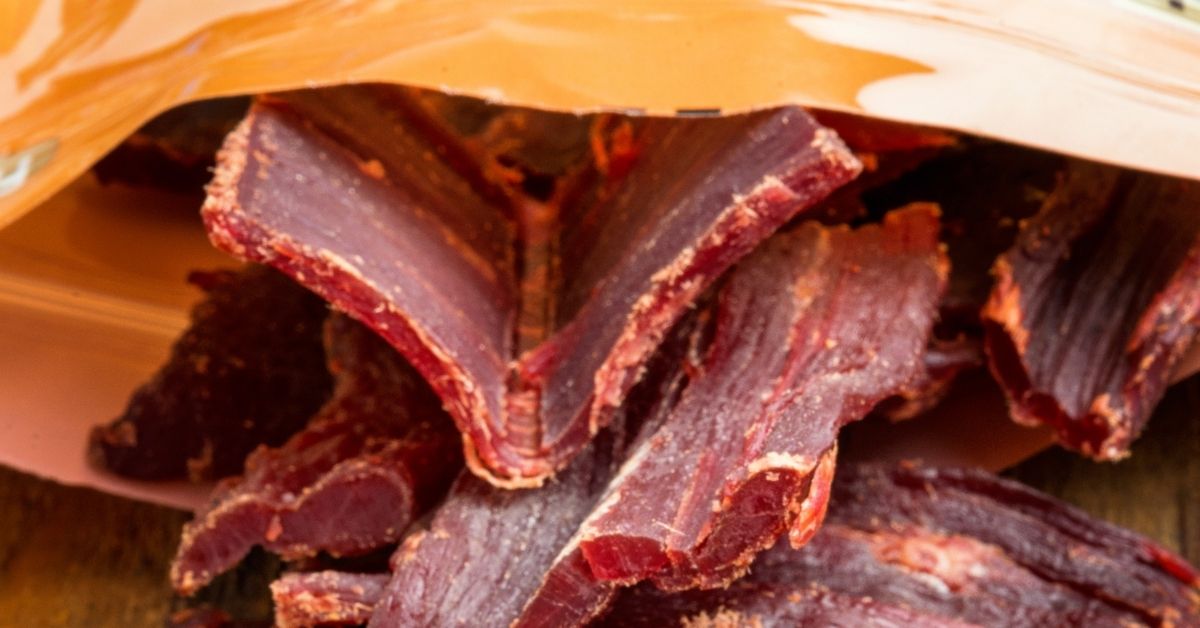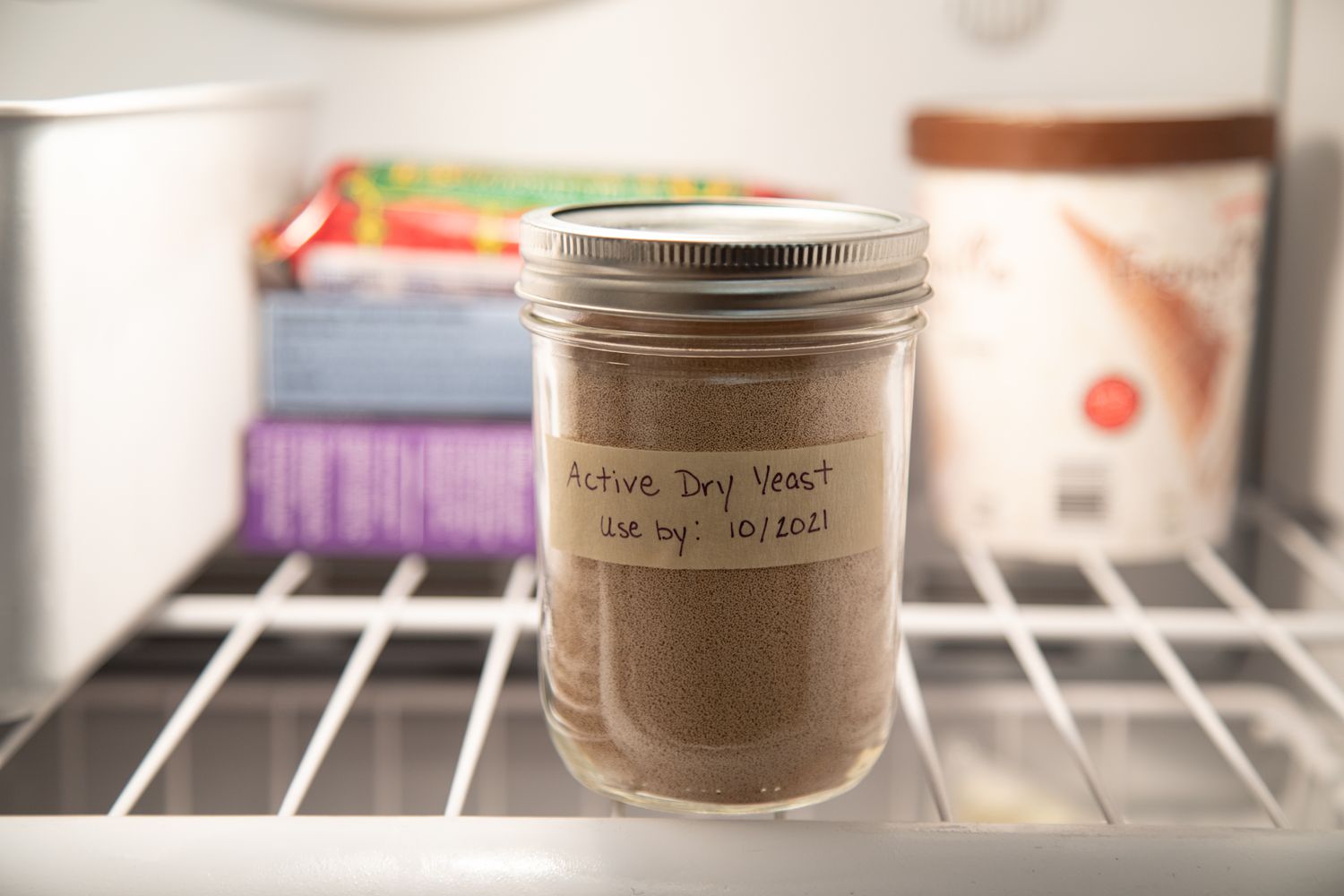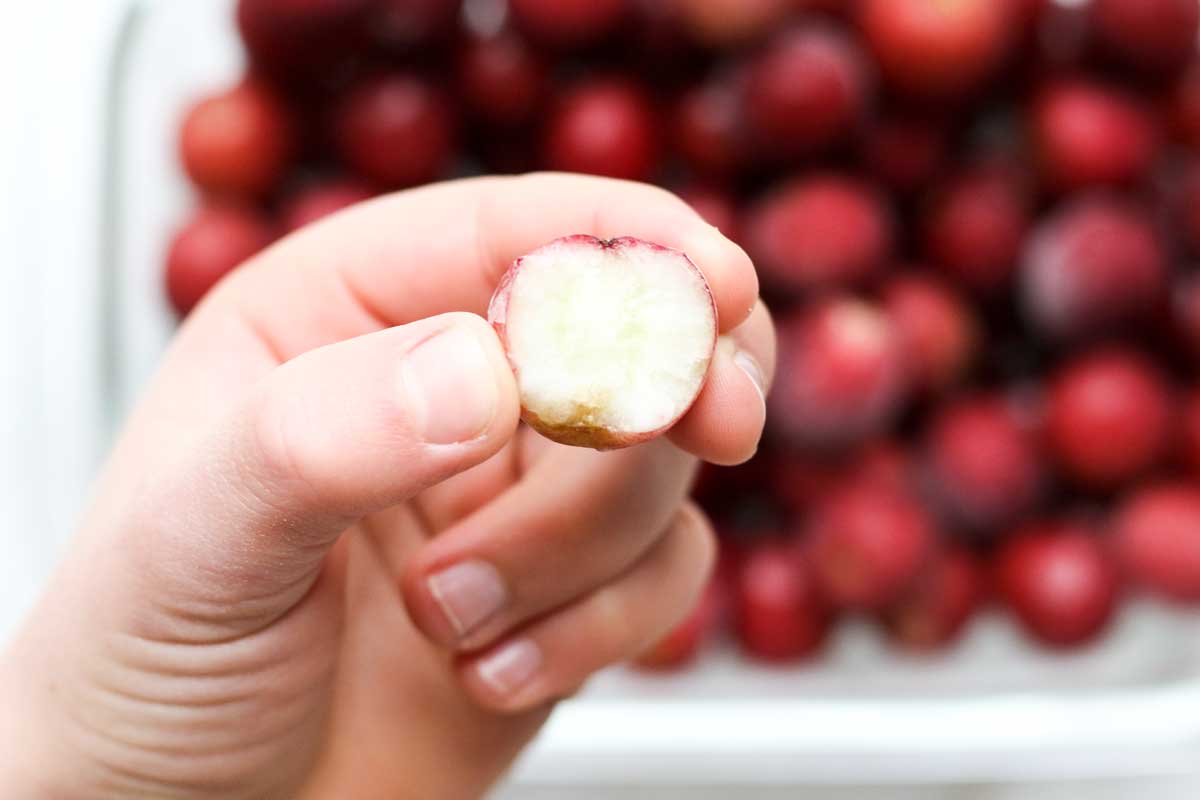

Articles
How Long Will Jerky Last In The Freezer
Modified: February 27, 2024
Learn about the shelf life of jerky in the freezer and discover helpful articles on how long it can last.
(Many of the links in this article redirect to a specific reviewed product. Your purchase of these products through affiliate links helps to generate commission for Storables.com, at no extra cost. Learn more)
Introduction
Jerky is a delicious and popular snack that has been enjoyed for centuries. Made from various types of meat, jerky is known for its long shelf life and portability, making it a convenient option for outdoor adventures, road trips, and quick energy boosts.
While jerky can be stored at room temperature for a certain period, there are times when you might want to keep your jerky fresher for longer, especially if you have bought in bulk or made a large batch at home. This is where freezing comes into play.
In this article, we will explore how long jerky can last in the freezer and the factors that affect its shelf life. We will also discuss the proper packaging techniques and recommended storage time to ensure your frozen jerky stays safe and flavorful. So, if you’re curious about preserving your jerky in the freezer, keep reading!
Key Takeaways:
- Properly freezing jerky can extend its shelf life up to 1 year, but it’s best to consume within 6 months for optimal quality and flavor. Remember to check for signs of spoilage regularly.
- Factors like moisture content, ingredient quality, and storage environment affect jerky’s shelf life. Properly dehydrate, vacuum seal, and store in small portions to maximize freezer lifespan.
Read more: How Long Will Sausage Last In The Freezer
Factors Affecting the Shelf Life of Jerky
Before we delve into the specifics of freezing jerky, it’s important to understand the factors that affect its shelf life. Proper handling, storage conditions, and the quality of the ingredients used can all play a role in determining how long jerky remains fresh and safe to consume.
1. Moisture Content: Moisture is the enemy when it comes to jerky. The drying process eliminates most of the moisture, ensuring longer shelf life. However, if the jerky is not properly dehydrated or is exposed to moisture during storage, it can lead to bacterial growth and spoilage.
2. Quality of Ingredients: The quality of the meat and other ingredients used in making jerky can impact its longevity. Fresh, high-quality meat and seasonings can help extend the shelf life, while using low-quality ingredients may result in faster deterioration.
3. Storage Environment: The temperature and humidity of the storage environment can significantly impact the shelf life of jerky. Warm temperatures and high humidity can accelerate spoilage, while cool temperatures and low humidity can help preserve the jerky for longer periods.
4. Air Exposure: Oxygen exposure can cause jerky to spoil quickly. The presence of oxygen allows bacteria and mold to thrive, leading to spoilage. Proper packaging techniques can minimize air exposure and extend the shelf life of jerky.
5. Preservation Methods: Different preservation methods, such as using preservatives or flavorings, can affect the shelf life of jerky. Some preservatives, like sodium nitrite, can prevent bacterial growth and extend the shelf life. However, it’s important to note that excessive consumption of preservatives may have health implications.
6. Type of Meat: The type of meat used in jerky can impact its shelf life. Some meats, such as beef, tend to have a longer shelf life compared to more fatty meats like pork or poultry. Leaner cuts of meat generally have a lower moisture content, making them less prone to spoilage.
By considering these factors, you can make informed decisions about storing and freezing your jerky to maintain its quality and extend its lifespan. Now, let’s move on to the specific guidelines for storing jerky in the freezer.
Storing Jerky in the Freezer
Freezing jerky is an excellent way to extend its shelf life and maintain its freshness. When done correctly, frozen jerky can remain safe and flavorful for an extended period. Here are some guidelines for storing jerky in the freezer:
1. Prepare the Jerky: Before freezing, make sure the jerky is properly dried to remove as much moisture as possible. This will help prevent freezer burn and maintain the quality of the jerky.
2. Portion the Jerky: Divide the jerky into small, airtight portions that can be consumed in one go. This will minimize the need to defrost more than necessary and allow you to enjoy fresh jerky each time.
3. Select Appropriate Packaging: Use freezer-safe bags or airtight containers to protect the jerky from moisture and freezer burn. Remove as much air as possible from the packaging to prevent oxidation and maintain the quality of the jerky.
4. Label and Date: It’s important to label each package with the type of jerky and the date it was frozen. This will help you keep track of the different batches and ensure you consume them within the recommended timeframe.
5. Arrange in a Single Layer: To prevent clumping and easy portion control, lay the jerky pieces in a single layer in the freezer bags or containers. This will also help facilitate faster and more even thawing when you’re ready to enjoy the jerky.
6. Store in a Cold Spot: Place the packaged jerky in the coldest part of your freezer, preferably away from doors and other items that may cause temperature fluctuations. This will help maintain a consistent temperature and prevent the jerky from thawing partially.
By following these guidelines, you can maximize the shelf life of your jerky and ensure that it stays in optimum condition while in the freezer. But how long can you freeze jerky without compromising its quality? Let’s find out in the next section.
Proper Packaging for Frozen Jerky
Proper packaging is crucial when it comes to freezing jerky. The right packaging ensures that the jerky stays fresh, free from freezer burn, and protected from moisture. Here are some tips for proper packaging of frozen jerky:
1. Freezer-Safe Bags: Use high-quality freezer-safe bags specifically designed for long-term storage in the freezer. These bags are thicker and more durable, providing better protection against moisture and freezer burn. Make sure the bags are sealed tightly to prevent air and moisture from entering.
2. Airtight Containers: Alternatively, you can use airtight containers made of plastic or glass for freezing jerky. These containers also offer good protection against air and moisture. Ensure that the containers have a tight-fitting lid and are freezer-safe.
3. Vacuum Sealing: Vacuum sealing is an excellent option for preserving the freshness and quality of jerky in the freezer. A vacuum sealer removes air from the packaging, preventing oxidation and freezer burn. This method provides an airtight seal, keeping the jerky well-preserved for longer periods.
4. Consider Individual Wrapping: If you want to minimize exposure to air and convenience, you may consider individually wrapping each piece of jerky before storing. Individual wrapping not only enhances protection against freezer burn but also makes it easier to grab a few pieces at a time without the need to defrost the entire batch.
5. Labeling and Dating: It’s essential to label each package with the type of jerky and the date it was frozen. This helps you keep track of the different batches and ensures that you consume them within a reasonable time frame. Use freezer-safe labels or write directly on the packaging with a permanent marker.
Remember, the key to proper packaging is ensuring that the jerky is tightly sealed, protected from air and moisture, and labeled for easy reference. With the right packaging, your frozen jerky will retain its flavor and texture, providing a delicious snack whenever you’re ready to enjoy it.
To extend the shelf life of jerky, store it in an airtight container or vacuum-sealed bag before placing it in the freezer. Properly stored, jerky can last up to 12 months in the freezer.
Recommended Storage Time for Frozen Jerky
While freezing jerky can significantly extend its shelf life, it’s important to note that frozen foods can still deteriorate over time. To ensure that your jerky stays flavorful and safe to consume, it’s recommended to adhere to the following storage time guidelines:
1. Up to 6 Months: For optimal quality, it’s best to consume frozen jerky within the first 6 months of freezing. During this time, the jerky is most likely to retain its texture, flavor, and nutritional value.
2. Up to 1 Year: Frozen jerky can still be safe to eat for up to 1 year. However, beyond the 6-month mark, the jerky may start to develop slight changes in flavor, texture, and quality. It’s important to pay attention to any signs of deterioration.
3. Check for Quality: Before consuming frozen jerky that has been stored for an extended period, it’s crucial to assess its quality. Examine the jerky for any signs of freezer burn, such as discoloration, dryness, or off flavors. If any of these signs are present, it’s best to discard the jerky.
It’s important to note that these storage time recommendations are general guidelines and can vary depending on various factors, including the quality and initial freshness of the jerky, the packaging method used, and the storage conditions in your freezer. Monitoring the quality of your jerky regularly is key to ensuring its long-term storage safety and enjoyment.
Additionally, it’s worth mentioning that the longer jerky is stored in the freezer, the more its quality may decline. Over time, the jerky may lose some of its flavor and texture, and the overall eating experience may be slightly compromised. It’s always best to consume frozen jerky within the recommended storage time for the best taste and overall enjoyment.
Now that you know how long you can keep frozen jerky, let’s discuss the signs of spoilage you should look out for when storing jerky in the freezer.
Read more: How Long Will Flour Last In The Freezer
Signs of Jerky Spoilage in the Freezer
Although freezing jerky can help preserve its freshness and extend its shelf life, it’s still important to be aware of signs of spoilage. Frozen jerky can still deteriorate over time, so it’s essential to know when it’s no longer safe to consume. Here are some signs of jerky spoilage to be aware of:
1. Freezer Burn: One of the primary signs of jerky spoilage is freezer burn. Freezer burn occurs when the jerky is exposed to air, resulting in moisture loss and the formation of ice crystals on the surface. The affected areas may appear dry, discolored, and have a different texture. If you notice any signs of freezer burn, it’s best to discard the jerky.
2. Off Odor: Another indicator of spoiled jerky is an off or rancid odor. If the jerky has a strong, unpleasant smell or an unusual aroma, it’s likely that it has gone bad. Trust your sense of smell and discard any jerky that doesn’t smell fresh.
3. Mold: While jerky is typically resistant to mold growth due to its low moisture content, it can still develop on improperly dried or poorly stored jerky. If you notice any fuzzy or discolored patches on the jerky, it’s a sign of mold growth. Moldy jerky should never be consumed and should be discarded immediately.
4. Texture Changes: Frozen jerky that has undergone spoilage may exhibit texture changes. It may become excessively dry or develop a slimy or tacky consistency. If the texture feels off or unusual, it’s best to err on the side of caution and discard the jerky.
5. Strange Taste: Spoiled jerky may have an unpleasant or off taste. If the flavor is significantly different from what you would expect or if it tastes rancid or spoiled, it’s best not to consume it.
Always remember that proper storage and handling can help minimize the risk of jerky spoilage in the freezer. However, if you notice any of these signs of spoilage, it’s best to discard the jerky to ensure your safety and enjoyment.
Now that we’ve discussed the signs of jerky spoilage, let’s explore some helpful tips to extend the freezer lifespan of your jerky.
Tips for Extending the Freezer Lifespan of Jerky
To maximize the freezer lifespan of your jerky and ensure it stays fresh and flavorful for as long as possible, consider the following tips:
1. Properly Dehydrate the Jerky: Ensure that the jerky is thoroughly dehydrated before freezing. Removing as much moisture as possible is essential for preventing freezer burn and extending the shelf life. Follow proper drying techniques to achieve the ideal moisture content.
2. Use Quality Ingredients: Start with high-quality ingredients when making jerky. Quality meat and seasonings can contribute to a longer freezer lifespan. Opt for fresh, lean cuts of meat and high-quality spices for the best results.
3. Vacuum Seal the Jerky: Consider investing in a vacuum sealer to remove air from the packaging. Vacuum-sealed jerky is less prone to freezer burn and maintains its quality and flavor for longer periods. This method helps to eliminate oxygen, which can cause deterioration.
4. Store in Small Portions: Divide your jerky into small servings or portion sizes before freezing. This minimizes the need to defrost a large quantity and allows you to enjoy small amounts at a time. Repackaging previously thawed jerky is not recommended, as it can lead to moisture accumulation and degradation.
5. Maintain Consistent Freezer Temperatures: Keep your freezer temperature consistent to ensure optimal preservation of the jerky. Fluctuating temperatures can lead to changes in texture and quality. Avoid repeatedly opening the freezer door unnecessarily to maintain a stable environment.
6. Avoid Overloading the Freezer: Freezing jerky in an overcrowded freezer can hinder airflow and increase the chances of temperature fluctuations. Leave enough space around the packages for proper air circulation, allowing the jerky to freeze evenly and maintain its freshness.
7. Rotate Stock: Practice a first-in, first-out (FIFO) approach with your frozen jerky. Consume the older batches before the newer ones to ensure you enjoy it at its best quality. Keep the jerky packages organized and labeled for easy identification and rotation.
By following these tips, you can significantly extend the freezer lifespan of your jerky and enjoy its deliciousness for an extended period. Always remember to trust your senses and discard any jerky that shows signs of spoilage, even if it falls within the recommended storage time.
Now that we’ve covered tips for extending the freezer lifespan of jerky, let’s wrap up this article.
Conclusion
Freezing jerky is an effective method to prolong its shelf life and maintain its flavor and quality over an extended period. By considering factors such as moisture content, ingredient quality, storage environment, air exposure, preservation methods, and the type of meat used, you can ensure that your jerky stays fresh and safe to consume.
When storing jerky in the freezer, it’s important to package it properly to protect it from freezer burn, moisture, and air exposure. Freezer-safe bags, airtight containers, and vacuum sealing are all effective methods for preserving jerky in the freezer. Labeling and dating each package will help you keep track of storage times and ensure you consume the jerky within the recommended guidelines.
The recommended storage time for frozen jerky is up to 6 months for optimal quality, with the maximum recommended time being 1 year. It’s crucial to regularly check for signs of spoilage, including freezer burn, off odors, mold growth, changes in texture, and strange tastes. If you notice any of these signs, it’s best to discard the jerky to maintain food safety.
To extend the freezer lifespan of your jerky, properly dehydrate it, use quality ingredients, vacuum seal the packages, store in small portions, maintain consistent freezer temperatures, avoid overloading the freezer, and practice a first-in, first-out approach with your jerky stock. By following these tips, you can maximize the shelf life of your frozen jerky and enjoy it at its best quality.
Remember, while freezing jerky can significantly extend its lifespan, it’s important to consume it within the recommended storage times for the best flavor and overall enjoyment. Treat your frozen jerky with care, and you’ll be able to savor its deliciousness during your outdoor adventures, road trips, or as a quick energy boost whenever you need it.
So go ahead, stock up on your favorite jerky, freeze it using proper techniques, and enjoy its mouthwatering taste for months to come!
Frequently Asked Questions about How Long Will Jerky Last In The Freezer
Was this page helpful?
At Storables.com, we guarantee accurate and reliable information. Our content, validated by Expert Board Contributors, is crafted following stringent Editorial Policies. We're committed to providing you with well-researched, expert-backed insights for all your informational needs.















0 thoughts on “How Long Will Jerky Last In The Freezer”